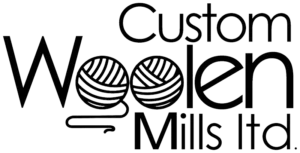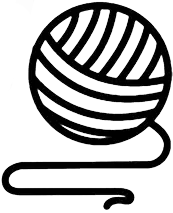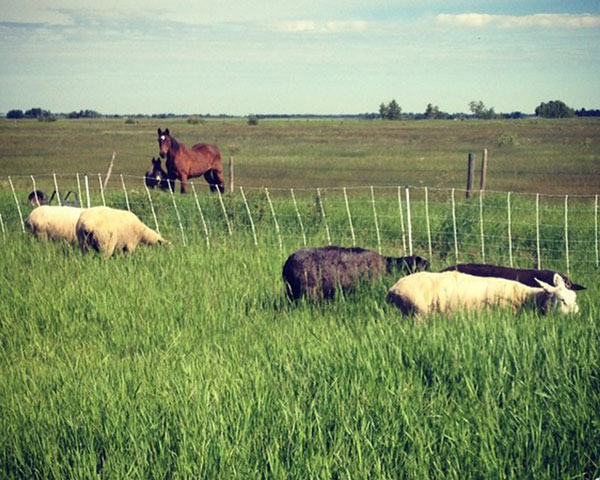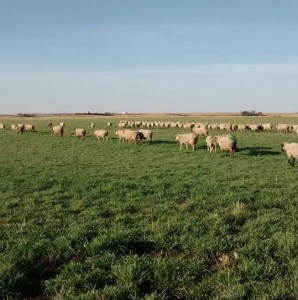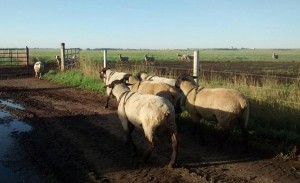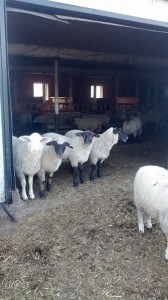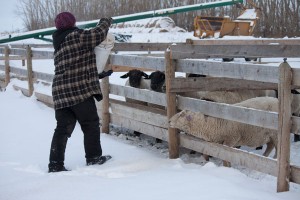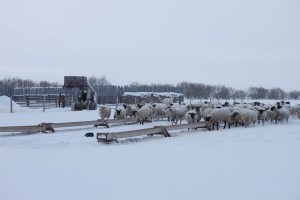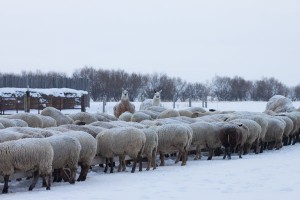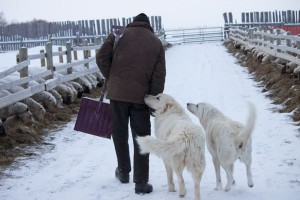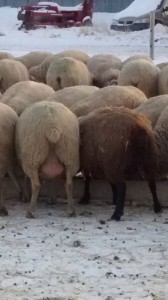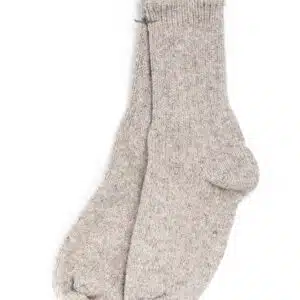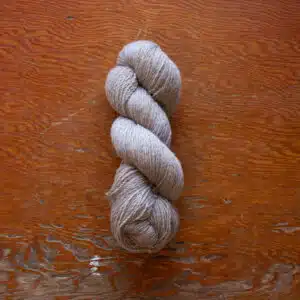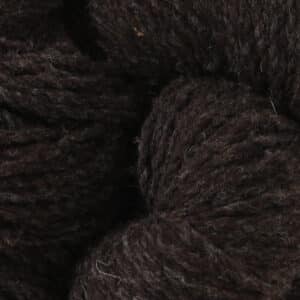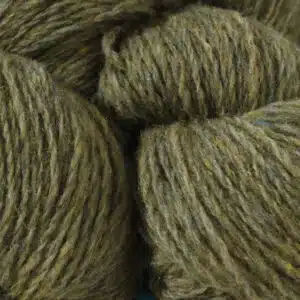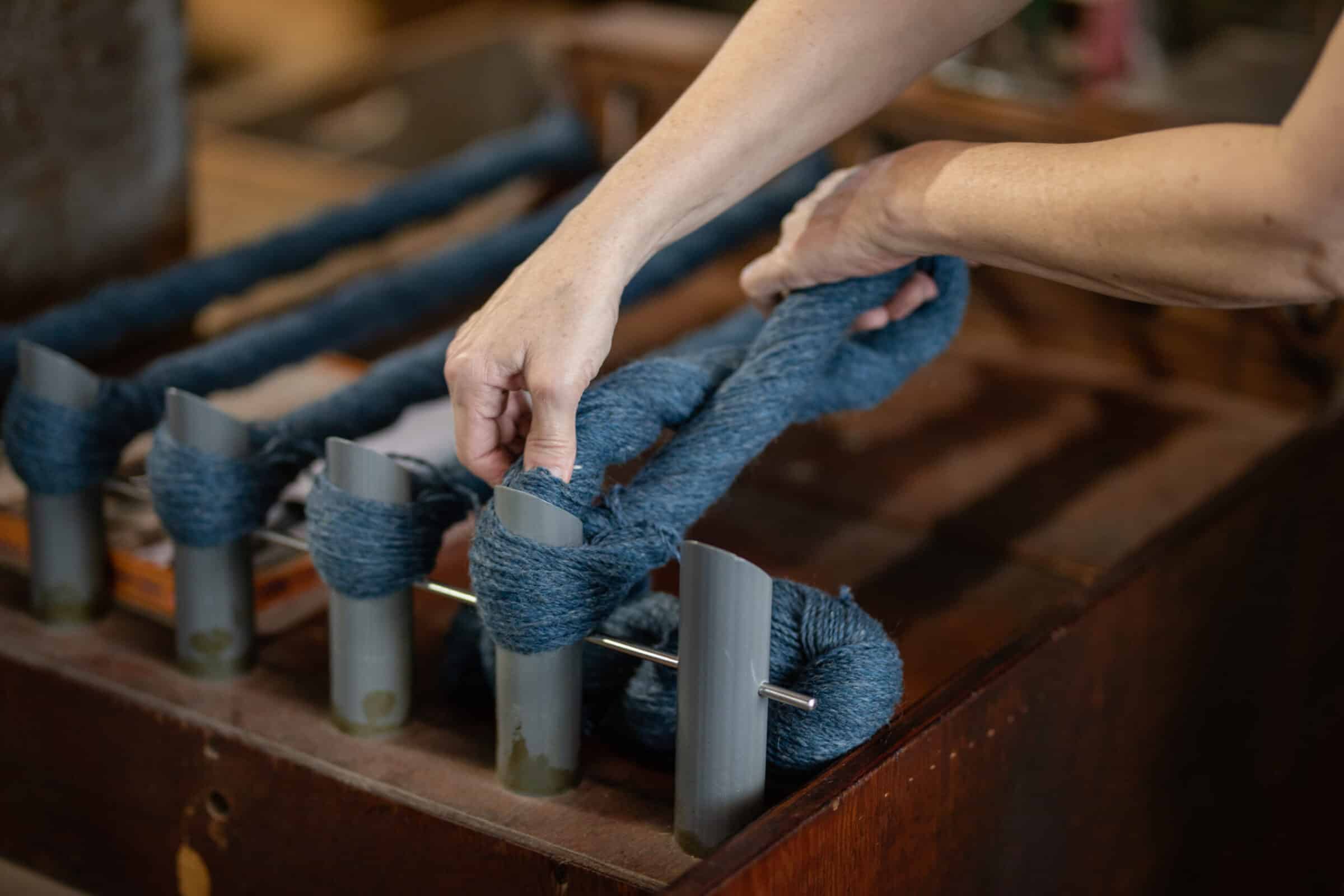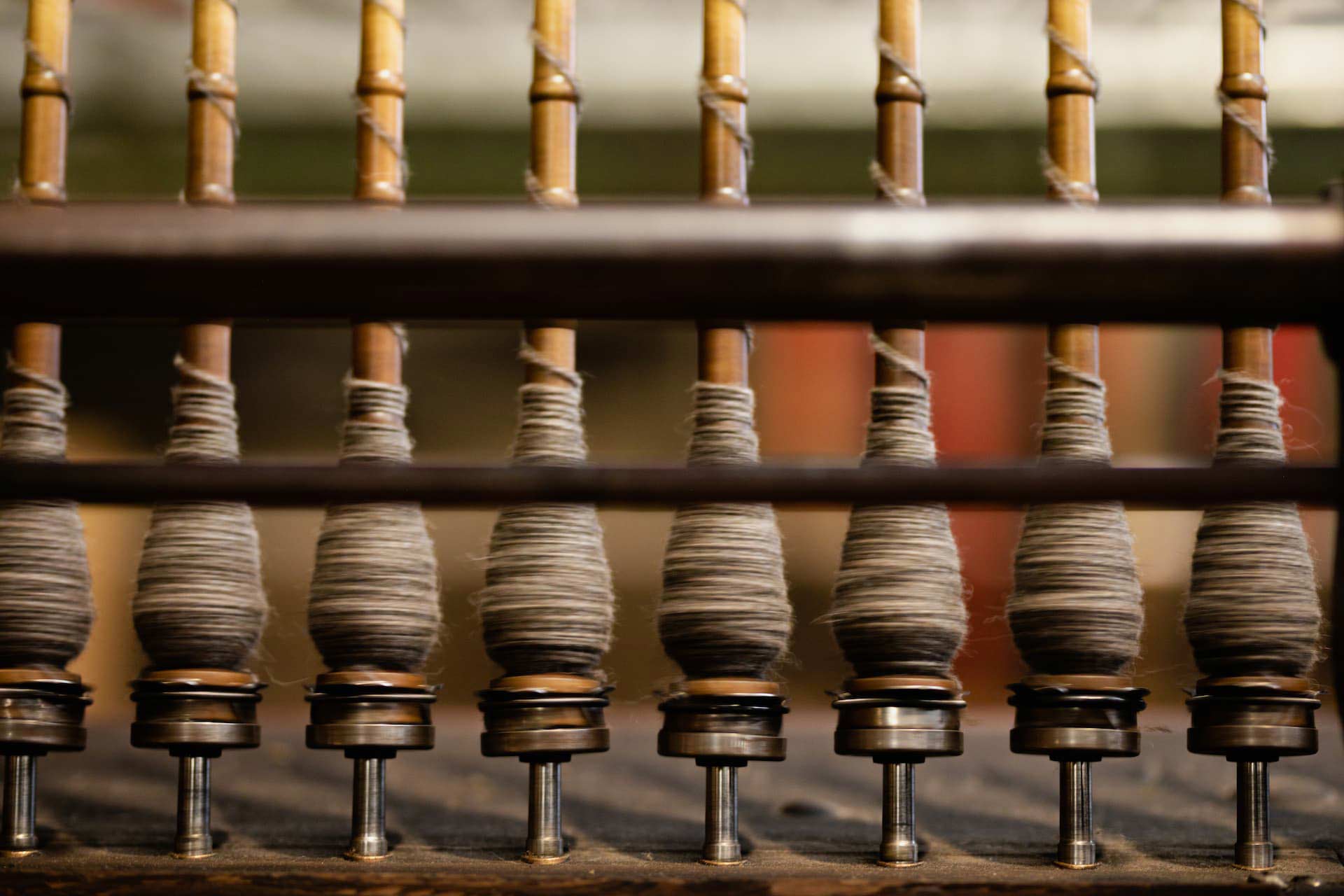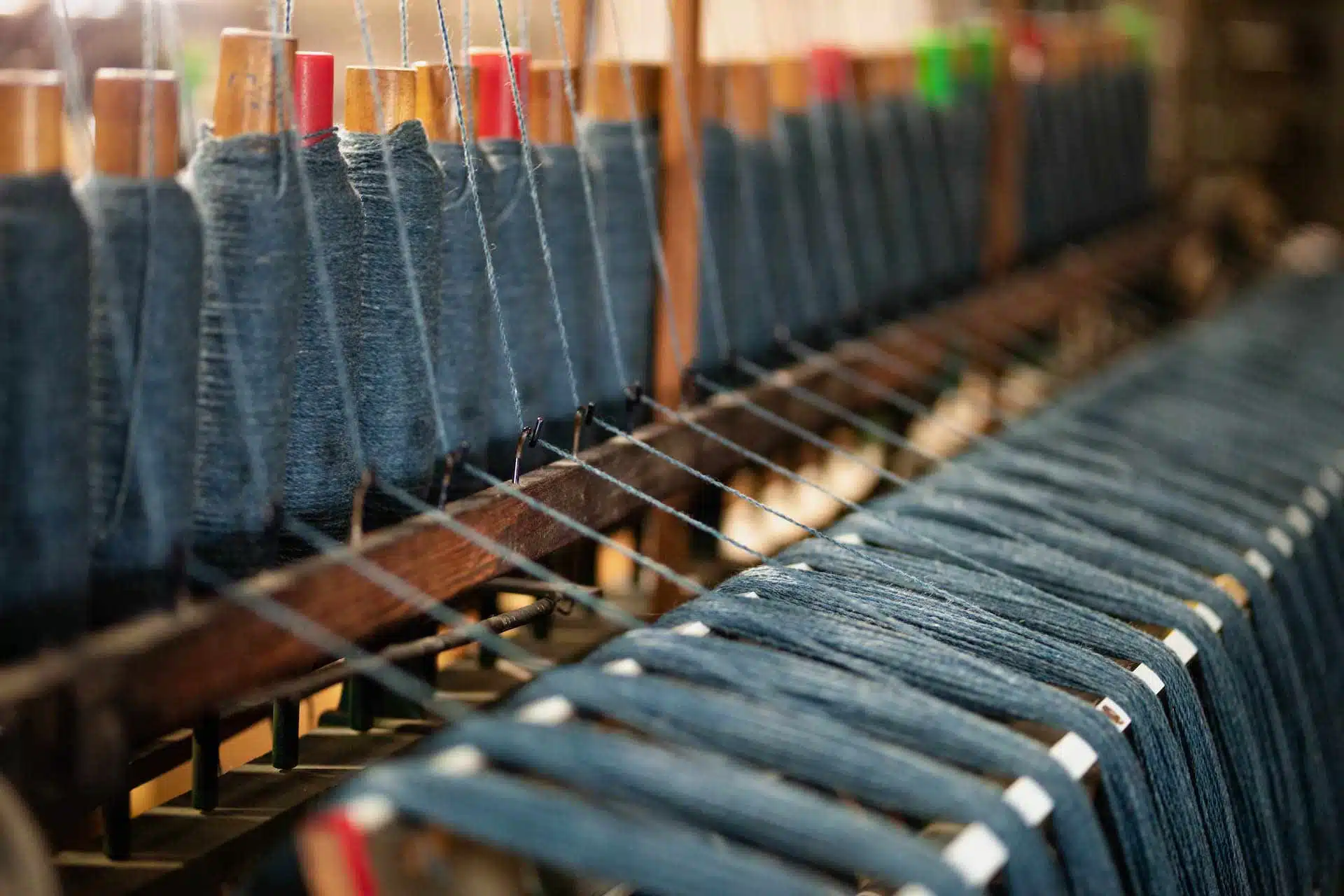This post is probably long overdue as we often have folks contacting us to learn about the wool we use and the farms that it comes from. We are so glad to have customers who are conscientious consumers and we are proud to be able to tell them about the Canadian farmers and ranchers we work with. In this blog we are going to tour through a local sheep farm and, as we go, answer some of the common questions we get about how sheep are treated on the farms we work with, explain how that relates to the wool you purchase, and clear up some misunderstandings about wool production as it applies in Canada.
First, lets start with a bit of background about Custom Woolen Mills. Custom Woolen Mills is one of very few remaining vertical woolen mills in North America. A vertical mill is one that does all the different steps of processing, from the raw material through to the finished consumer product. This means that we purchase raw wool that has just been shorn from the sheep, and transform it into yarns, wool-fill bedding, and knitted goods, using 100% Canadian fibre in all of our products. At Custom Woolen Mills, we also practice what we refer to as minimal processing. More specifically, we wash the raw wool with a mild, plant-based, biodegradable detergent and then we rinse it with water; nothing more, nothing less. We do not use common industry processes such as bleaching and carbonizing that are used to whiten the fibres and remove pieces of straw or plant material that get in the wool while the sheep are out doing their sheepy thing. We feel these processes are harmful to the environment and damaging to the wool fibres, altering some of wools naturally beneficial qualities. Without these processes, we need to be sure to start with the nicest, cleanest, strongest raw wool possible (and even still you will notice small bits of straw and vegetative matter in our products - evidence of a sheepy life well lived), which means buying wool shorn from sheep that are healthy, clean, and well cared for. That brings us to farms like Lone Pine, just a few kilometres down the road from Custom Woolen Mills.
At Lone Pine, sheep farming is a family affair; mom, dad, three girls, two Pyrenees guard dogs, and three guard llamas. Early every morning, mom and dad open up the gates so that the sheep have free access between the barn yard and grazing pastures, while the dogs and llamas keep a watchful eye out for coyotes and other potential dangers. At night, they are locked safely in the barn yard so that no coyotes can get them. However, on some of the larger farms and ranches, the sheep stay on pasture or range land for the entire summer and the guard dogs are working hard 24 hours a day. All of the farms Custom Woolen Mills work with graze their sheep on pasture during the summer - this is both best for the sheep and necessary to grow nice clean wool. Sheep kept enclosed all of the time in pens or barns get lots of straw and manure in their fleeces, making their wool unacceptable for our minimal processing practices.
During the Canadian winters, the sheep are kept closer to home so that they are better protected from predators and so that they can be fed. Despite their wooly fleeces, the Lone Pine sheep don't always like being out in the wind, or snow; on many winter days you'll find them taking in the scenery from the comfort of the barn doorway - only venturing out to see what the humans on the farm might be up to (hopefully food is involved). A thick layer of clean straw bedding gives them a clean, dry environment in which to while away the winter. You can tell a healthy sheep in winter because it has a good thick wool coat that keeps it insulated from the cold - so insulated that snow doesn't melt off of it. The quality of a sheep's wool is hugely related to its health and wellness.
Many people ask us whether the wool we use is organically grown. We do work with some certified organic farms, however, for the most part, the answer is no. The farms we buy wool from all work very hard to keep their flocks strong and healthy, grazing their sheep on pasture during the summer and feeding them high quality hay, and silage during the winter. However, most do not use certified organic feed and most do treat any sheep that become ill with antibiotics for infections like pneumonia and pesticides for internal parasites or worms. Worms can be a major problem for sheep. Having spoken to many farmers and veterinarians about this issue, the consensus is that, while managing worms through grazing and quarantine practices is something they all try to do, there are not currently reliable ways to go completely pesticide-free without sacrificing animal well-being. If you would like more information about organic wool, we have found this Sheep to Shawl Studio blog post to be a good opening review.
Another topic we are often asked about is how the sheep are shorn. Customers want to know whether shearing is harmful to the sheep and whether they have been subjected to mulesing. First, in modern wool sheep breeds, shearing at least once a year is absolutely necessary for the health and wellbeing of the sheep. Sheep have been bred in the relationship of flock and shepherd for wool production for thousands of years (some of the earliest archaeological evidence of domesticated sheep dates back to 8,500 BC - ref: Spin, Span, Spun Fact and Folklore for Spinners and Weavers by Bette Hochberg) and they are now completely dependent on the shepherd shearing them to relieve them of excessive wool build-up. Sheep that are not shorn regularly can accumulate so much wool that they can no longer get up from the ground or move around, making it difficult for them to survive. At Custom Woolen Mills, we do not accept wool with more than one year's worth of growth. Shearing is probably not a sheep's favourite thing, but shearers work to make it as quick, gentle, and stress-free a process as possible. No farmers want to see their sheep struggle or get cut in the shearing process. At Lone Pine, everyone gets involved in the shearing; herding the sheep in, shearing them, sorting the wool, and sending them back on their way.
The practice of mulesing, which is removing the skin around the back legs and tail of the sheep to cause scarring that prevents wool growth and possible fly infestation, is a big concern to customers and rightly so. It is a painful, damaging, and unnecessary procedure for sheep. While the practice has been widely used internationally, particularly in warmer climates such as New Zealand and Australia and making mulesing free certification necessary to distinguish conscientious farms from those that are less so, mulesing has never been an accepted practice in Canada. Many Canadian sheep farmers and shearers have never even heard of mulesing, and that's a good thing; Canadian wool comes from sheep that are not subjected to mulesing.
It is very important consumers demand that the companies they support and the products they purchase are based in responsible and ethical practices, right down to the raw materials. At Custom Woolen Mills we are honoured to work directly with Canadian farmers and ranchers, such as Lone Pine, who place animal care at the top of their priority list, raising healthy sheep with beautiful wool to keep us all warm on those cold Canadian nights. Please feel free to contact us with any further questions about the wool we use and we will do our best to answer them. Below are a few additional related resources that might be of interest, including a wonderful article on land stewardship by Kelsey Beasley of Integrity Ranch, another Alberta Ranch that we purchase the wool clip from.
Thank you to Lone Pine Farm for spending the cold morning touring with us.
Additional Resources:
Farms we work with
http://www.worldfooddayusa.org/kelsey_beasley
Organic Wool
https://oecotextiles.wordpress.com/2009/08/11/what-does-organic-wool-mean/
